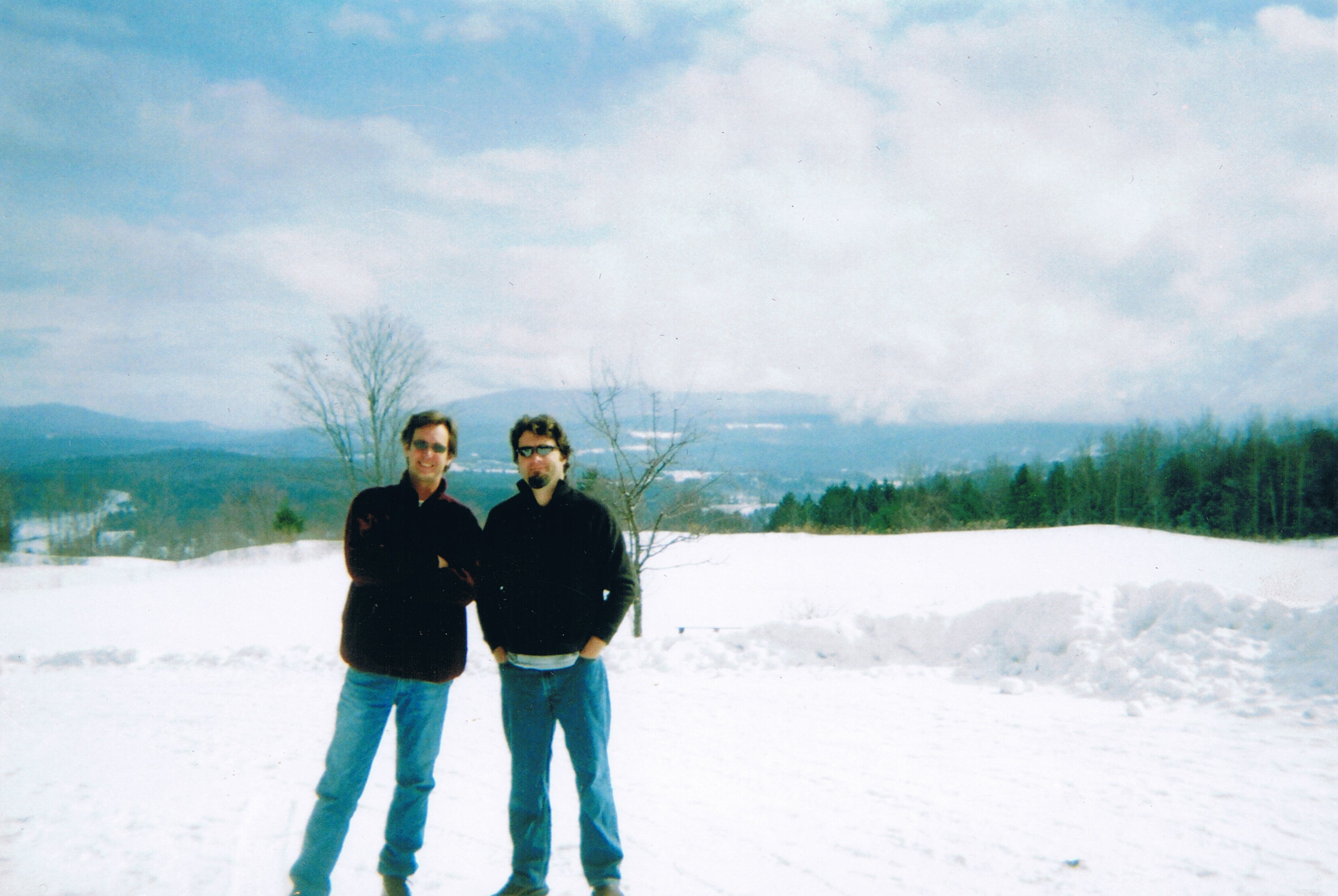


Brian Hulse (b. 1970) is a Harvard grad currently teaching in Virginia. His music is sophisticated, even brainy, but it draws on a lot of sources and mixes them freely. His rhythmic sense is especially sharp, gangly, and witty—very American in its sound. At one moment things may have a hint of Webernian pointillism, at the next they’re jazzy. The title of the disc is “Pseudosynthesis,” and the composer explains that it’s meant to suggest things that shouldn’t or don’t fit together, and yet they do or one at least makes the effort). Overall, that’s a pretty good description of this music.
Having said that, I like the work, but at this point don’t yet have a sense of a compelling musical personality. The two pieces that make the strongest impression are Seastone, written for the exceptional violin/guitar Duo46 (four and six strings, I assume), and Sunstone, written for the same performers, with added piano. The former is full of incisive sonic invention; the blend of the instruments is great, and Hulse has a real feel for how wide a range of sounds is possible on the guitar, without indulging in superficial tricks. (The preponderance of works on this disc for the instrument makes me wonder whether it comes from a friendship between composer and performer, or whether Hulse is himself a guitarist.) The latter is simply the best piece on the program, its expressive intent most clear, deep, and focused. And the balance between the three instruments—not easy to achieve—is elegant.
The piano piece Pinch mutates with a quicksilver grace from one mood and/or state to another. The flute/piano For Rumi is sweetly lyrical. The guitar/piano piece Sweat works hard to overcome what I feel is an inherent imbalance on every front between the two instruments: volume, timbre, and sonorous weight (so unlike what happens when the violin is added in Sunstone; an interesting case of sonic “chemistry”). Overall it comes close, but only in the last, overtly blues-influenced movement do I think it starts to cut loose from these handicaps.
The fact that I don’t feel a strong individual profile may also be more commentary on the times than the composer’s responsibility, because Hulse obviously is talented and imaginative. In this era of so many choices, so much musical hybridization and globalization, it may be hard for a young artist to develop a distinct personality early on. There’s so much to be absorbed, so many contradictory languages and traditions to confront. In the previous century (the 20th, remember?), one could at least latch on to one of the various “camps” and claim a distinct practice—even if the resultant “individuality” was superficial (in fact you were distinct from others because of the group you chose to be in). Anyway, since Hulse seems also to be a big fan of French deconstructionist thought, all these concerns may seem to him very old-fashioned. Accept the inherent multiplicity of it, and get on with it, might be his response. Hard to argue with that.
Performances are beautiful, but that (happily) seems to becoming the norm, with our current generation of extraordinary performers —something American culture should celebrate, were it not so absorbed with exalting its detritus.
There are moments throughout the music when the bonds start to slip. The opening exuberant movement of Seastone projects a natural joy. The third movement of Sweat is a sweet lullaby (with a few diversions that might keep the child awake). So what I can say is that there’s groundwork laid here for something to come. I like what I hear, but I still take a wait-and-see stance towards what may follow. (It would be nice to know the chronological sequence of the works, but the notes don’t reveal that. Sunstone would be a good omen, were it the most recent work.) That will show whether or not this was the beginning of something more dazzling. Diaghilev’s mandate to Stravinsky still holds, I think, for all of us: “Astonish me.”
- Robert Carl, Issue 32:6 (July/Aug 2009) of Fanfare Magazine

Brian Hulse’s album Pseudosynthesis is a collection of original compositions for solo piano, guitar and violin duo, flute and piano duo, and small chamber ensemble. On this album there are moments of singing melody, flamenco rhythms, discontinuities, syncopated rhythms, virtuosity; borrowing both form the classical tradition and twentieth century, making this music some of the most interesting and fresh twenty-first century chamber music recently recorded.
“If the music on this record is for anything, besides simply being for itself, it is for remembering the quirky, the impure, the rogue, and the ambulant of music. It is for a vision of music as a theater of sound-sensation in which what happens is not determined in advance and not bound by neat categories; where nothing is fully blended or fully authentic.” (Hulse)
The album opens with an extended work for solo piano composed for and performed by Nathaneal May. “Pinch” has a wide range of dynamic possibility and must be a hard piece to perform because there are so many different moods conveyed within just one work. May performs the music with incredible precision and his dynamics bring to life the moods and feelings of boldness, resoluteness, echoing, playfulness, dancing, sensuousness, confidence, and reflectivity.
“Seastone” is an original work that was commissioned by Duo 46, which is Matt Gould on Guitar and Beth Llana Schneider-Gould on violin. This is a real highlight on the album. “Seastone” is a five movement work and Duo 46 perform it with incredible tone, and rhythmic accuracy. There is a “whiff’ of Mediterranean sound and a feeling of quirkiness, stuttering rhythms, and a very effective modernized flamenco guitar sound in the third movement. Duo 46 performs this piece, which sounds like a handful, with precision, grace, ease, and passion. Hulse has composed a really special piece with “Seastone”.
Brian Hulse’s album Pseudosynthesis is a unique and fresh blending of all that classical and modern music has to offer. The compositions capture so many different moods and it will surely excite, sadden, and conjure up many images in the listener’s imagination. This album contains wonderful performances by incredible musicians, and the music will inspire and elevate any fan of modern classical music.
